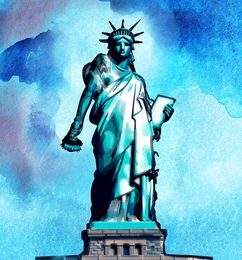Although Donald Trump’s election to a non-consecutive second term to the US presidency is not unprecedented—Grover Cleveland had done it in 1893—it is nevertheless a watershed moment. Considering the extreme odds he overcame, he has been called the most resilient politician in the history of the US. His second term is likely to have significant ramifications around the globe.
Trump represents a growing American instinct to pivot back to its largely isolationist stance before the modern era began, a bit over a century ago. The intervening decades saw the US become the richest and most powerful nation in the world, and no longer gun-shy about intervening in geopolitical situations around the world. It had become the world’s policeman, and heralded the liberal world order that commentator Francis Fukuyama deemed the ultimate and irrevocable winner in his book—The End of History and the Last Man.
History disagreed with that pronouncement and has pushed back strenuously. The modern era of globalisation has clearly seen better days, as those Americans who suffered under it have propelled the US away from its basic tenets. Understanding this phenomenon requires understanding the evolution of liberalism.
Classical liberalism was the dominant force shaping the west since the reformation and the enlightenment. With its success, the west thereafter steered the destinies of the rest of the world and the course of history. But the modern inheritors of the liberal tradition gradually moved far away from its core principles.
The deviation of modern liberals from their legacy has had far-reaching consequences. Their abandonment of individual rights in favour of group rights has led to them supporting religious personal laws in place of secular, constitutional ones; their abandonment of economic freedom in favour of managed economies has led to such oddities in the west as centralised micro-regulations for barber shops and salons; and their questioning the fundamental principles of science in pursuit of ideological purity has made them blind to the realities of biology.
These deviations have turned most modern liberals into the very antithesis of what the founders and giants of their movement stood for over centuries. In other words, it has made them the champions of the elites, who, in their snooty self-confidence, believe they have the answers to all the world’s woes.
Their disdain for the hoi polloi’s right to have their own opinions, let alone the ability to choose their own preferred solutions, has led to a massive disconnect. This gap has been filled by Trumpism. Liberals’ disconnect with the masses is not just a US phenomenon. Many prominent liberal voices in the US continue to double down on their ideological assertions, now rejected by a majority of the electorate, instead of introspecting and course-correcting. Similarly, there have been several examples of liberals in India and elsewhere emulating those dyed-in-the-wool ideologues.
That itself is a giveaway of the transition from classical liberalism, in which self-doubt, introspection, and an objective, questioning mind are the guiding principles. Instead, modern liberalism has moved very far to the left of its classical heritage, committing itself instead to ideological beliefs, devoid of introspection, questioning or criticism.
The results are a growing chasm between their ideological commitment and a non-compliant public sentiment. The contrast to earlier periods, when classical liberals kept gaining in public confidence and support for their demonstrated empathy for the masses, is stark.
As the second Trump administration takes shape, and it becomes clearer to what extent its policies will recede from decades of US policy, both domestic and globally, the response by modern liberals worldwide will be a factor worth watching.
Baijayant ‘Jay’ Panda is National Vice President of the BJP and a member of the Lok Sabha.


